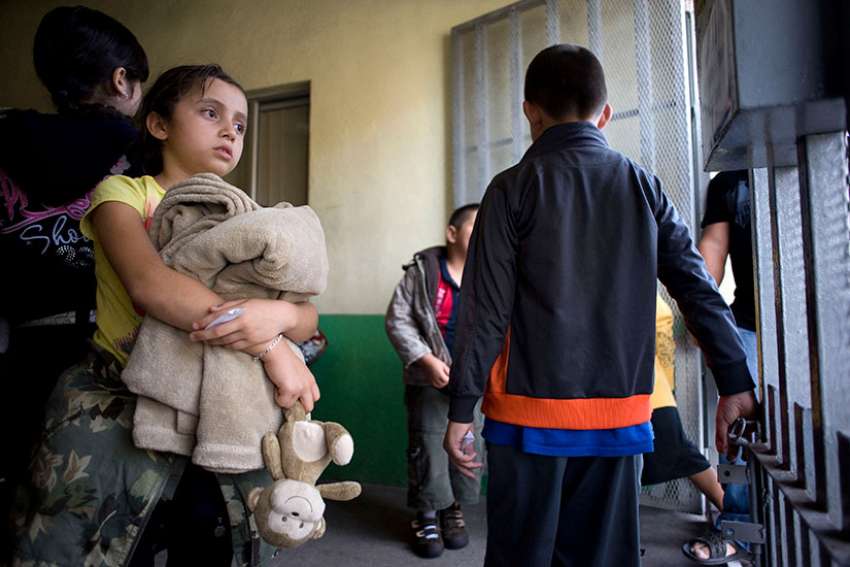“As members of a large family, we must work to place the 'person' at the centre; this is not a mere number or an abstract entity but a brother or sister who needs our help and a friendly hand,” the Pope wrote in his June 7 letter to the Latin American Parliament, which is holding its 33rd General Assembly.
The assembly of representatives from 23 Latin American and Caribbean countries is meeting to discuss migration in the region and international responses.
Francis offered his congratulations to the parliament “on this initiative that aims to help and make life more dignified for those who, having a homeland, regrettably do not find in their countries adequate conditions of security and subsistence” and are forced to flee.
The Pope's message highlighted three themes: reality, dialogue, and commitment. He explained how each of these can be oriented toward developing effective humanitarian aid for migrant peoples.
Speaking about his first chosen word, “reality,” Francis emphasized knowing the causes of migration.
“This requires not only analysis of this situation from ‘the study desk,’” he said, “but also in contact with people, that is to say with real faces.” He warned against an “aseptic analysis” which “produces sterile measurements,” instead encouraging the parliament to pursue “a relationship with a person in the flesh helps us to perceive the deep scars that he carries with him, caused by the reason, or unreason, of migration.”
Francis expressed hope that the assembly would produce “valid responses for migrants and host countries,” as well as security which is based in reality.
“Dialogue is indispensable in this work,” Francis explained. “One cannot work in isolation; we all need each other.”
He condemned the “throwaway culture,” calling instead for member nations to work for approaches which welcome migrants fairly and efficiently. He emphasized the need for unity in dialogue, saying that attaining “a consensus between the parties is a ‘craft;’ a meticulous, almost imperceptible task but essential for shaping agreements and regulations.”
“Dialogue is essential to foster solidarity with those who have been deprived of their fundamental rights,” Francis said.
Speaking on commitment, the Pope cautioned against spending too much energy “on the detailed analysis and the debate of ideas,” saying instead that a solution must be sought.
“Latin America and the Caribbean have an important international role and the opportunity to become key players in this complex situation,” he said.
He emphasized the need for mid-term as well as long-term planning so that aid can extend beyond emergency responses. This, he said, will allow for migrants' integration into their new nations and, assistance in the lands they fled.
Francis called special attention to the needs of children in this struggle, recalling their “right to be children,” and once more spoke out against human trafficking, which he described as a “scourge.”
He acknowledged the enormity of the work, saying that “we need men and women of good will who, with their concrete commitment, can respond to this ‘cry.’”
“I urge national governments to assume their responsibilities to all those residing in their territory,” the Pope said, “and I reiterate the commitment of the Catholic Church, through the presence of the local and regional Churches, to responding to this wound.”
In closing, Pope Francis encouraged the assembly in their work on this crisis, and prayed for the intercession of the Holy Virgin, recalling the Holy Family’s flight to Egypt. He asked for the prayers of the assembly, and asked God to bless them.


